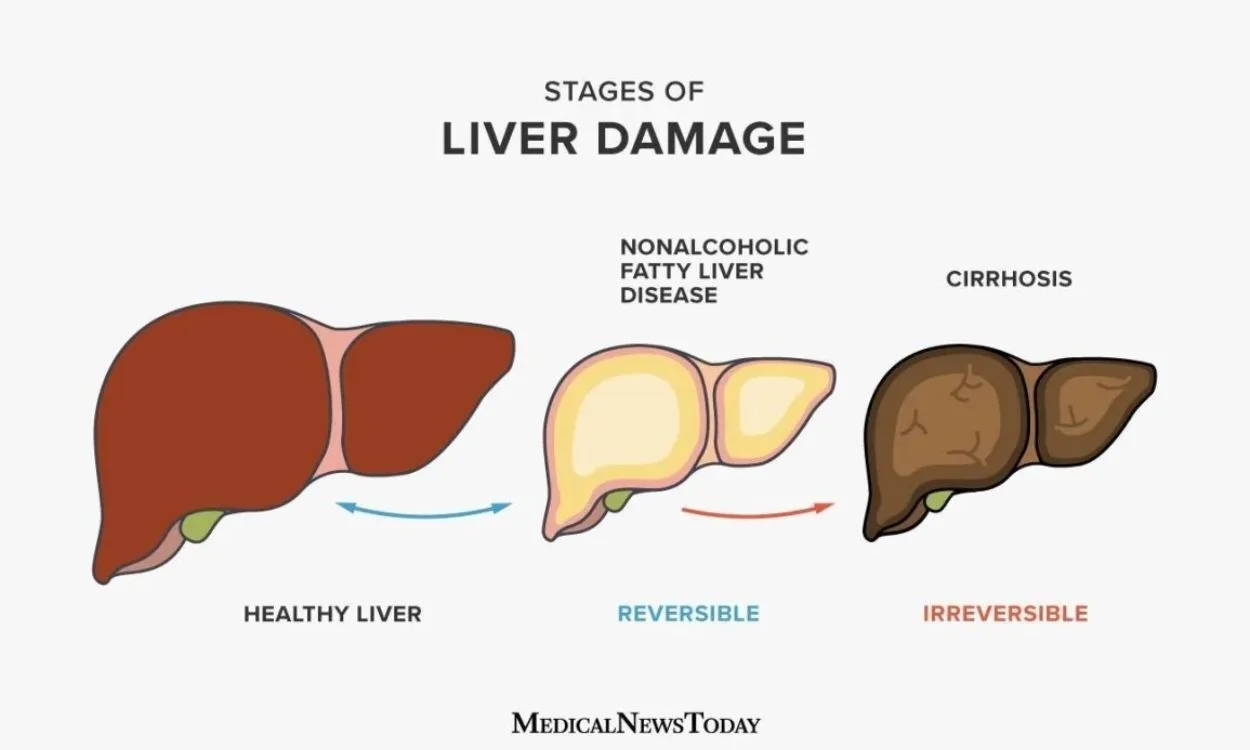Are there any complications associated with fatty liver?
Fatty liver, also known as hepatic steatosis, is a condition characterized by the accumulation of fat in the liver cells. It is a common condition that can affect individuals of all ages and backgrounds. While fatty liver is often harmless and reversible, it can lead to complications in some cases. In this article, we will explore the potential complications associated with fatty liver and provide insights into how to manage and prevent them.
Complications of Fatty Liver
- Nonalcoholic Steatohepatitis (NASH): In some cases, fatty liver can progress to a more severe condition called nonalcoholic steatohepatitis (NASH). NASH is characterized by inflammation and liver cell damage, and it can lead to fibrosis, cirrhosis, and even liver failure if left untreated.
- Liver Cirrhosis: Prolonged inflammation and liver cell damage caused by NASH can result in the development of liver cirrhosis. Cirrhosis is a late-stage scarring of the liver, which impairs its normal function and can lead to complications such as portal hypertension, liver failure, and an increased risk of liver cancer.
- Liver Cancer: Individuals with fatty liver and advanced liver fibrosis or cirrhosis are at an increased risk of developing liver cancer, also known as hepatocellular carcinoma. Regular monitoring and appropriate management of fatty liver can help detect and prevent the progression to liver cancer.
- Cardiovascular Disease: Fatty liver is often associated with other metabolic conditions such as obesity, diabetes, and dyslipidemia. These conditions, combined with the inflammation caused by fatty liver, can increase the risk of developing cardiovascular disease, including heart attacks and strokes.
- Type 2 Diabetes: Fatty liver is closely linked to insulin resistance, a condition where the cells become less responsive to the action of insulin. Insulin resistance can contribute to the development of type 2 diabetes, further complicating the management of both conditions.
- Metabolic Syndrome: Fatty liver is considered one of the key components of metabolic syndrome, which is a cluster of conditions that increase the risk of heart disease, stroke, and type 2 diabetes. Metabolic syndrome includes abdominal obesity, high blood pressure, high blood sugar levels, and abnormal cholesterol levels.
Managing and Preventing Complications
While fatty liver can lead to complications, there are several steps individuals can take to manage and prevent them:
- Healthy Lifestyle: Adopting a healthy lifestyle is crucial in managing fatty liver and reducing the risk of complications. This includes maintaining a balanced diet, engaging in regular physical activity, and managing weight through gradual and sustainable weight loss if necessary.
- Monitoring and Treatment: Regular monitoring of liver function tests and imaging studies can help detect any progression in fatty liver and the development of complications. Treatment may involve managing underlying conditions such as obesity, diabetes, and dyslipidemia, as well as addressing lifestyle factors contributing to liver health.
- Medication and Supplements: In some cases, medication or supplements may be prescribed to manage underlying conditions or improve liver health. However, it is important to consult with a healthcare professional before starting any new medications or supplements.
- Avoidance of Alcohol: For individuals with alcoholic fatty liver disease or other liver conditions, it is crucial to avoid alcohol completely. Alcohol can exacerbate liver damage and increase the risk of complications.
- Vaccinations: Vaccinations against hepatitis A and B viruses are recommended for individuals with fatty liver, as they can help prevent additional liver damage and reduce the risk of complications.
Fitpaa – Your Partner in Health and Fitness
If you are concerned about your liver health and overall well-being, Fitpaa can assist you in achieving your health and fitness goals. With our AI-driven metabolism monitoring and management technology, we can help optimize your metabolism and support your journey towards a healthier lifestyle.
Fitpaa’s personalized Fitpaa Capsule, based on your metabolism, health goals, and lifestyle, can provide the necessary guidance and support to improve your liver health and overall fitness. Our team of fitness coaches, nutritionists, and doctors will work together to create a plan that includes medical therapy, medical exercise therapy, medical nutrition therapy, and cognitive behavior therapy.
By following your Fitpaa Capsule daily through the Fitpaa mobile app, you can benefit from real-time guidance, habit-building techniques, and purpose-finding strategies to achieve your desired results. The app provides tools such as a virtual workout trainer, diet tracker, performance tracking, and progress tracking to make your journey easier and more enjoyable.
Join us at Fitpaa and let us help you achieve your health and fitness goals while taking care of your liver health. Your well-being is our mission!
Download the Fitpaa app today and start your journey towards a healthier and happier life.









